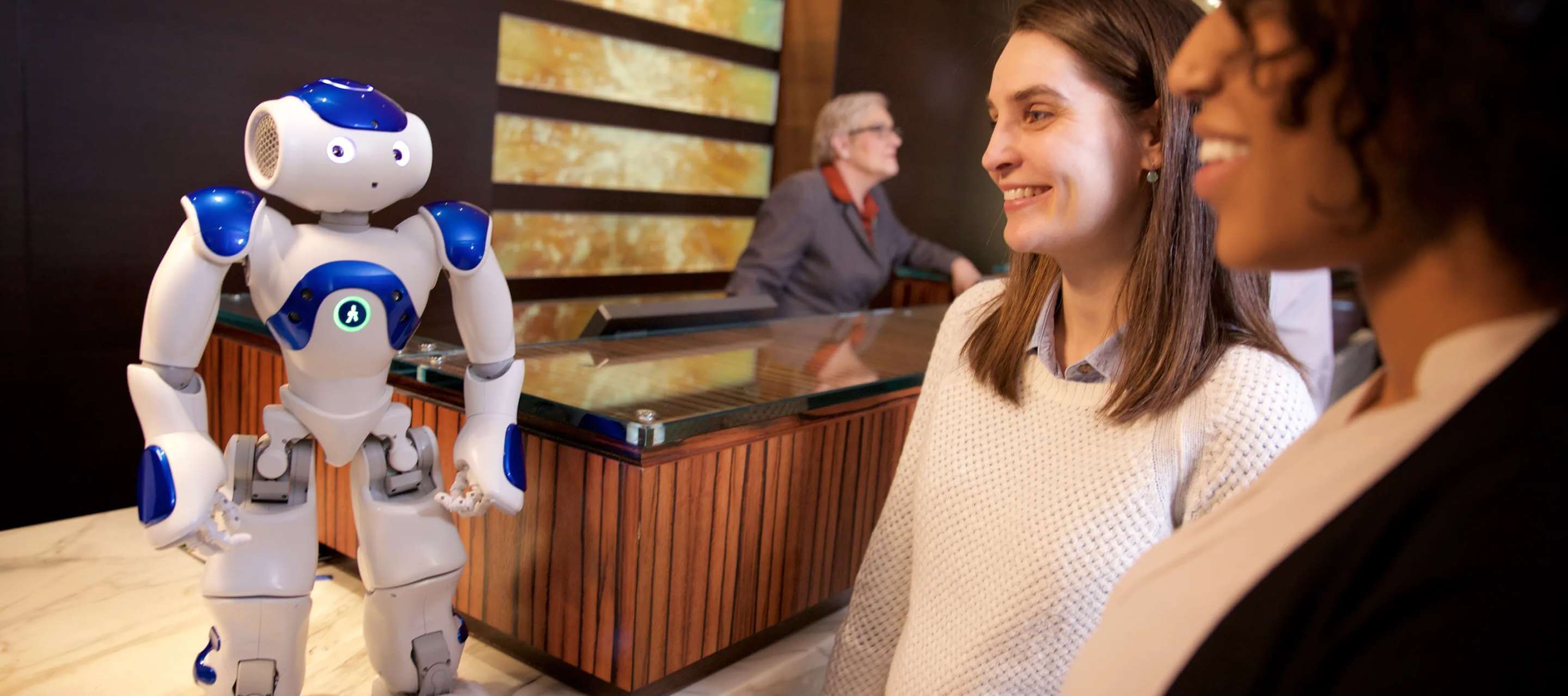Article content
The hospitality industry is changing at an immense pace. While it may not be the first industry that comes to mind when thinking about technological advances, hospitality is increasingly incorporating and benefiting from IoT (Internet of Things) innovations.
According to a 2019 report released by Deloitte, much of the growth seen in the industry was attributed to tech adoption. It also showed how the positive growth resulting from this implementation of IoT is only encouraging the hospitality sector to incorporate more technology into its operations.
Now while evidence may show that technology is enhancing hospitality, you might be wondering exactly what improvements IoT is actually making in this sector. Keep reading to find out.
How is IoT Changing the Hospitality Sector?
IoT can be used in many ways in hospitality and can lead to improvements in guest experience, cost-efficiency, energy management, and security.
Staffless Hotels
Nothing ruins a good holiday quite like poor customer service. Fawlty Towers, for all its faults, would have made for a perfectly reasonable seaside escape were it not for Basil Fawlty’s rudeness and poor Manuel’s incompetence.
So, perhaps the rise of staffless hotels – such as Munich’s Hotel Buddy – is to be expected. In fact, Hotel Buddy boasted a 90 per cent occupancy rate in its first year of operation, where visitors could check in, find their rooms and check out with zero human interaction.
Although a totally staffless hotel doesn’t appeal to everyone, it is likely that we will see IoT technology used to streamline processes, just as it has in other industries. Hotel workers will be given more time to focus on customer service functions which cannot be replaced by machines. This will also allow guests to have more control over the contact they have with staff.
All in all, increased integration of IoT will help hotels save on operational costs, while guests will benefit from smoother and speedier processes. Everyone wins.
Your Stay, Your Way
Hyper-personalised rooms are becoming ever more common, with brands such as Hilton and Marriott now experimenting with the connected room concept.
At the Hilton, guests can use the Hilton Honors app to control the temperature, lighting, TV and window coverings in their room, as well as personalise the room with technology which loads the most popular streaming media and other individual accounts to in-room TVs.
Marriott’s offering is similar; the hotel chain has partnered with both Samsung and Legrand to create its IoT Guestroom Lab.
In the longer term, both brands intend to introduce voice commands and will support integration with a range of connected devices, engagements and experiences. Guests will be able to personalise almost every aspect of their room, from the colour of the lighting to the artwork on the walls.
Plus, the more they use these devices, the more the technology learns about their behaviours and preferences, meaning they won’t even have to set personalisations: the room will already know. This will create a better guest experience, leading to an enhanced reputation.
Energy Management
Perhaps a less-obvious change for guests, but an important one for hotel operators, is the energy savings which can be gained from the use of IoT technology.
Hotel guests pay less attention to details like air conditioning and turning the TV and lights off, compared to when they are at home. The IoT can be used to monitor and reset the room when guests leave and automatically adjust temperatures, ensuring that no energy is wasted. This not only saves the hotel money but is also an attractive proposition for potential guests.
According to a report produced by Booking.com, 87 percent of global travellers expressed a desire to travel sustainably. Investing in IoT technology to help with energy management can help boost a hotel brand’s CSR and environmental credentials.
Enhanced Security
Security is an important aspect in the hospitality industry. Not only do hotels want to ensure the safety of guests, but they must also consider how best to secure guests’ rooms, as precious and expensive items are often left there for safekeeping.
IoT integrations, such as smart room keys and other devices, can help ensure that private spaces can only be accessed by certain individuals. This will decrease the possibility of theft and other security risks, making hotels safer.
Final Thoughts on IoT in Hospitality
The hospitality industry has seen many changes as it has had to adapt to the ever-changing needs of customers. One significant factor that’s helping the industry to grow immensely is IoT technology.
Hotels that have already implemented this technology have found it has contributed to enhanced guest experience, security, energy management, streamlined processes and greater cost-efficiency.
However, hospitality is not the only industry using IoT technology. No matter what industry you are a part of, there is an IoT solution which can boost your business. When you’re in need of an IoT expert, we can help you to find one. Get in touch to find out how.










